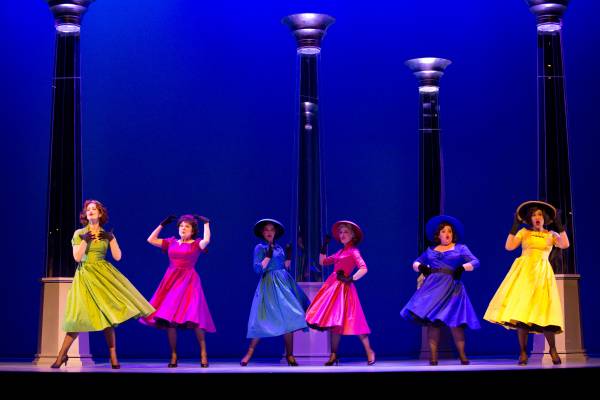What were they thinking?

STC’s production of Jonathan Biggins’s Talk, a play partially about truth in the media, arrived just as the Trump regime had opened the sluices on its deluge of lies. Good timing! But the play, about a lunar-right shock-jock (John Waters), felt like an extravagantly extended sketch from Biggins’s usual satirical home in The Wharf Revue – the difference being that the laughs were in considerably shorter supply.
Directors Robert Icke and Duncan Macmillan’s stage adaptation of 1984 (for Sydney Theatre Company and State Theatre Company of South Australia) excessively distorted Orwell’s intentions by spending a wildly disproportionate amount of stage time on the torture of Winston Smith, despite constituting only 15 percent of the book. If this was a misguided desire to shock it was a failure.
Surprise packet
David Williamson’s Odd Man Out (at the Ensemble) contained his most compelling protagonist in years: the Asberger syndrome-affected Ryan. Justin Stewart Cotta gave a finely nuanced realisation of what it means to be hyper-intelligent and emotionally stunted, often staring into the audience with a confronting expression that simultaneously spoke of emotional vacancy and a brain seething with ideas.

On paper a musical version of Madeleine St John’s novel The Women in Black (as Ladies in Black for Sydney Festival) seemed like adding sugar to honey. Yet although Carolyn Burns’ book and Tim Finn’s music and lyrics couldn’t escape a certain archness and predictability on occasion, they also rose above this to tug at the heartstrings with unexpected frequency. Finn’s music was at its best when espousing a cafe-society blitheness, while his lyrics were crammed with witty rhymes.
Courting controversy
Chimerica, a play by Lucy Kirkwood about the Tiananmen Square massacre, lobbed on The Ros Packer Theatre stage like a hand-grenade. Here was individual frailty facing the clanking steel of monolithic power, and moral outrage inverting fear. A cross between a thriller and an investigative documentary, the play created some flaring resonances with Trump’s presidency. But then you can probably find Trump implications in a box of chocolates these days. Certainly they were there in the step-by-stealthy-step elimination of opposition in Cabaret.

My highlights
More important than such gloomy resonances in this Cabaret was Paul Capsis’s performance as the Emcee. Towering, glowering, wicked and wonderful, Capsis executed light-switch transitions from being hysterically funny to being oddly, unexpectedly moving. He also delighted in choreographer Kelley Abbey’s ritualised pornography, which was so deliciously lewd it is as though the Kit Kat Klub has become a damp patch on the bed of Nazism.
In the potent Mark Colvin’s Kidney the two protagonists, Mary-Ellen Field (Sarah Peirse) and Mark Colvin (John Howard), masked their fears, vulnerabilities and blind fury behind walls of strength, humour and stoicism, and, when those walls did crack, playwright Tommy Murphy stripped his characters of their articulateness, and made us suffer what was left unsaid. David Berthold’s Belvoir production was all about compassion and a courage that transcends the need for enemies.
It might reasonably seem that the current political universe leaves the poor satirist with nowhere to go. Save your sympathy. Jonathan Biggins, Drew Forsythe and Phillip Scott breezed through that dilemma like three bankers through an enquiry. The funniest parts of this year’s Wharf Revue – read anything to do with Trump and Blazey Best’s Michaela Cash impression – were as good as anything the team has done. Trump had to be good for something.